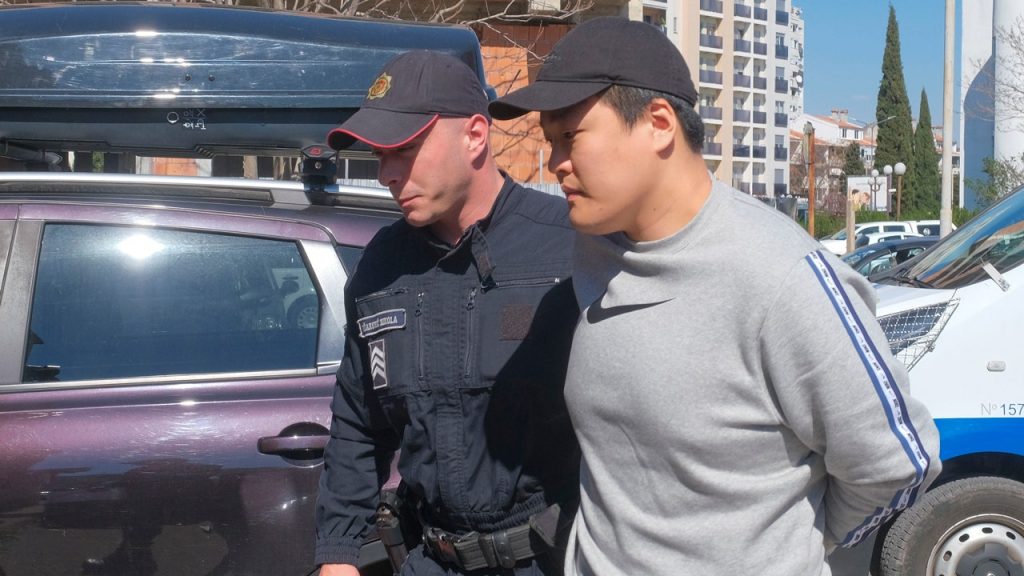Montenegro’s top court has overturned a decision to extradite South Korean mogul Do Kwon, known as “the cryptocurrency king,” back to his native country. This decision comes after a months-long legal battle which began when Kwon was arrested in Montenegro last year. Both South Korea and the U.S. had requested Kwon’s extradition, with Montenegrin courts initially ruling in favor of the U.S. before later changing their decision to favor South Korea’s request. The Supreme Court has ruled that a lower court should reconsider the case and ultimately it will be up to Montenegro’s justice minister to make the final decision.
Kwon was charged with fraud in the U.S. following a $40 billion crash of Terraform Labs’ cryptocurrency, which had a devastating impact on retail investors worldwide. Along with another South Korean individual, Kwon was arrested in Montenegro while attempting to leave for Dubai using fake Costa Rican passports. Kwon has already served a prison sentence in Montenegro for the use of a fake passport. He and five others affiliated with Terraform Labs were accused of fraud and financial crimes related to the collapse of their digital currencies in May 2022.
The collapse of TerraUSD, a stablecoin pegged to the U.S. dollar, resulted in around $40 billion in market value being wiped out for holders of TerraUSD and its accompanying currency, Luna. Stablecoins are designed to prevent drastic price fluctuations by being tied to stable assets. However, the plummeting value of TerraUSD caused significant losses for investors. The legal saga surrounding Do Kwon and Terraform Labs has raised questions about the regulation and oversight of the cryptocurrency market, particularly in cases of fraud and financial crimes.
The decision by Montenegro’s top court to overturn the order of extradition for Do Kwon highlights the complex legal and diplomatic challenges surrounding cases involving individuals accused of financial crimes in multiple countries. The involvement of both the U.S. and South Korea in seeking Kwon’s extradition demonstrates the international nature of the legal proceedings. The Supreme Court’s ruling that the lower court should revisit the case and the final decision rests with the justice minister underscores the need for a thorough and fair legal process in extradition cases.
The reversal of the extradition order for Kwon indicates the potential for further legal developments in the case, as Montenegro’s justice minister will have the ultimate say on whether Kwon will be extradited to South Korea or the U.S. The allegations of fraud and financial crimes against Kwon and others connected to Terraform Labs have significant implications for the cryptocurrency market and investor confidence. The outcome of this legal saga will likely have far-reaching consequences for the regulation of cryptocurrencies and the accountability of individuals involved in fraudulent activities.
The case of Do Kwon, the “cryptocurrency king,” serves as a cautionary tale for those involved in the volatile and fast-paced world of digital currencies. The collapse of Terraform Labs’ stablecoin and the subsequent legal battles highlight the risks and challenges inherent in the cryptocurrency market. The actions of regulators, law enforcement agencies, and judicial bodies in cases like Kwon’s will shape the future of cryptocurrency regulation and governance. Ultimately, the resolution of this legal saga will have repercussions for both investors and the broader cryptocurrency industry.


